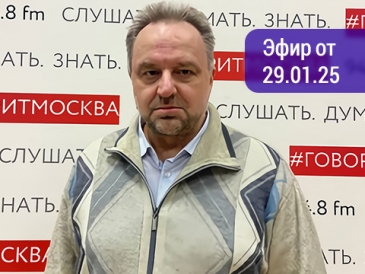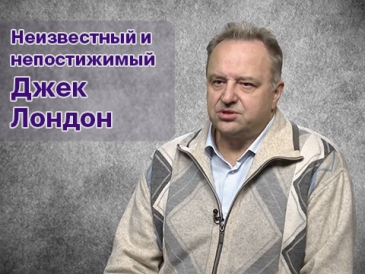Неэргодическая экономика
Авторский аналитический Интернет-журнал
Изучение широкого спектра проблем экономики

«Ядерный» рейтинг академической активности и популярности экономистов России
«Ядерный» рейтинг экономистов России – список 500 экономистов России, имеющих наивысшие библиометрические показатели в ядре РИНЦ. Данный рейтинг является составной частью проекта «Академические рейтинги», осуществляемого сотрудниками Финансового университета при Правительстве Российской Федерации. Разрабатывается с 2017 года инициативной группой исследователей.
| Разработчик | Финансовый университет при Правительстве Российской Федерации |
| Дата создания | 2017 |
| Периодичность | Ежегодно |
| Источник | Интернет-журнал «Неэргодическая экономика» |
| Индекс доверия | 38.5 |
| Число респондентов | 191 |
| Информация об исследованиях | Данный рейтинг представляет список 500 наиболее успешных экономистов России и базируется на официальных показателях системы Национальной электронной библиотеки elibrary.ru и основанной на ней системе Российского индекса научного цитирования (РИНЦ), в частности, на данных о ядре РИНЦ, которое включает в себя все издания и публикации, отраженные в базах данных Web of science Core collection, Scopus, а также специальном национальном индексе на платформе Web of science: Russian science citation index. |
РЕЗУЛЬТАТЫ ИССЛЕДОВАНИЯ:
| Период | Методология | Рейтинг |
|---|---|---|
| 2017 | Открыть | Открыть |
| 2018 | Открыть | Открыть |
| 2019 | Открыть | Открыть |
10176
0
21.05.2017
Добавить комментарий:
|
|
|
| Ваше имя: | |
Последние комментарии
Публикации
The article attempts to systematize the most important institutional advantages of the Chinese management model, which differs significantly from the Western and Russian models. The research considers six fundamental elements of the self–organization model of the Chinese elites: maintaining the monopoly of the Chinese Communist Party in the system of power; the ability of the Communist Party to self–organize (scale, hierarchy, sequence of career growth, meritocracy, total lack of immunity from criminal prosecution, the presence of the death penalty); the system of checks and balances of power, consisting of formal (the practice of filing complaints against representatives government, etc.) and informal (mental and personnel traditions based on the historical factor) institutions; refusal to export its model and the implementation of the doctrine of soft hegemony; global coordination of all levels of the national economy through the modern State Planning Committee of the People’s Republic of China (State Committee for Development and Reform); adherence to three basic principles (common sense, naturalness and managerial paranoia), which are subordinated to the effect of nesting. The article shows that these elements provide many advantages for the Chinese elites: the presence of immunity against degradation and degeneration, the historical continuity of strategic decisions and the formation of state instinct, the weakening of foreign policy aggressiveness during the change of the old world order, the timely balancing of all aspects of Chinese society, the achievement of permanent managerial responsibility. We consider the possibility of Russia borrowing the institutions of the Chinese management system; the research notes that there are prerequisites for such borrowing in terms of creating a ruling party, a system of operational complaints and an institution of elite self–purification.
01.02.2026
В XXI веке началось возрождение некоторых культурных страниц отечественной истории. Одна из них связана с творчеством замечательного советского писателя Олега Куваева и, конечно же, с его романом «Территория». Писатель уже получил титул русского Джека Лондона, в связи с чем актуализируется несколько вопросов. Что конкретно общего у двух авторов? И чем они все–таки принципиально различаются? В статье даются ответы на поставленные вопросы.
10.12.2025
В статье сделана попытка систематизировать некоторые важнейшие институциональные преимущества китайской модели управления, которая существенно отличается от западной и российской моделей. Рассмотрены шесть основополагающих элементов модели самоорганизации китайских элит: поддержание монополии КПК в системе власти; способность самоорганизации КПК (масштабность, иерархичность, последовательность карьерного роста, меритократия, тотальное отсутствие иммунитета от уголовного преследования, наличие смертной казни); система сдержек и противовесов власти, состоящая из формальных (практика подачи жалоб на представителей власти и др.) и неформальных (ментальная и кадровая традиции по учету фактора истории) институтов; отказ от экспортирования своей модели и реализация доктрины мягкой гегемонии; глобальная координация всех звеньев народного хозяйства посредством современного Госплана КНР (Государственного комитета по развитию и реформам); следование трем базовым принципам (здравому смыслу, естественности и управленческой паранойе), которые подчинены эффекту вложенности. Показано, что перечисленные элементы обеспечивают множество преимуществ китайских элит – наличие иммунитета против деградации и вырождения, историческую преемственность стратегических решений и формирование государственного инстинкта, ослабление внешнеполитической агрессивности в период смены старого миропорядка, своевременное балансирование всех сторон жизни китайского общества, достижение перманентной управленческой ответственности. Рассматривается возможность заимствования Россией институтов китайской системы управления; отмечается наличие предпосылок для подобного заимствования в части создания правящей партии, системы оперативных жалоб и института самоочищения элит.
05.12.2025
Видео
События
Аналитики Финансового университета обнародовали Рейтинг университетов мирового класса – 2021 / 19 мая
Аналитики Финансового университета представили Рейтинг ведущих экономических журналов России – 2021 / 19 мая
Сотрудники Финансового университета на конференции «Журнала Новой экономической ассоциации» представили новый Рейтинг российских экономических журналов / 13 мая








